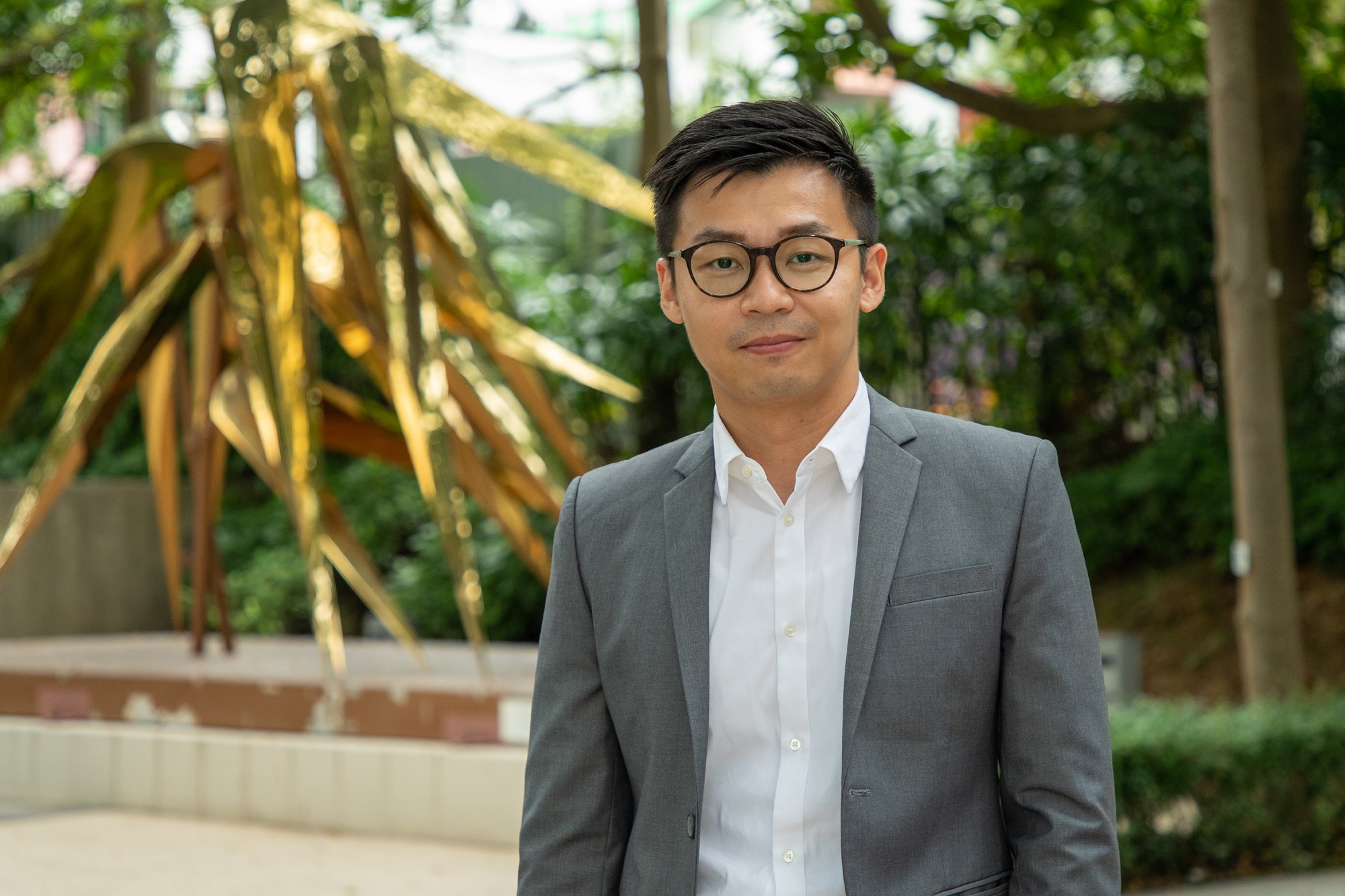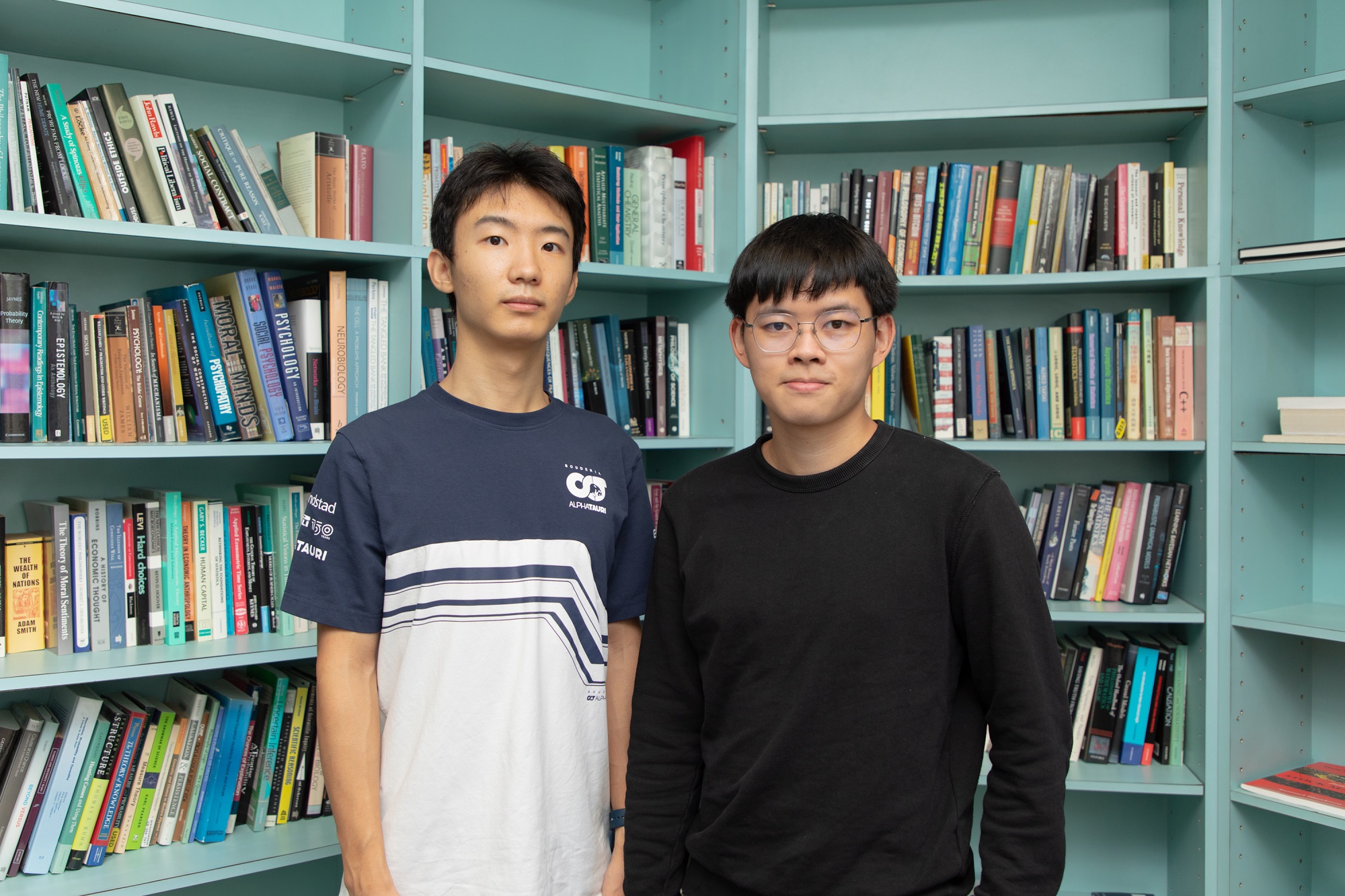Discover HKBU
Set off on a personalised education journey for the future world
28 Dec 2022
For first-year student Yi Tingxuan, his university journey has started somewhat unconventionally.
In place of a traditionally structured curriculum for his studies, he is designing his own learning pathway, tailored to his personal interests while having access to all HKBU courses. Instead of attending large classes in lecture halls, he is taking transdisciplinary courses on global issues during which he works together with students from other programmes to devise creative solutions to social problems.
In the next semester, he will take courses in computer science, the subject of his choice. He is excited to be studying under the guidance of his academic advisor, Professor William Cheung, Associate Vice-President (Undergraduate Programmes) and Professor of the Department of Computer Science.
Tingxuan feels fortunate to have this flexibility in charting his own scope of study in HKBU’s new Bachelor of Arts, Science and Technology (Hons) programme. He says: “I really appreciate that this programme is personalised, which means we can choose any subject we wish to study and develop our area of interest. I also enjoy the solution-based learning modules offered by the programme. These experiences can help me prepare for my future career.”
Designing your own learning pathway
Launched in September 2022, the programme aims to nurture future leaders and innovators who can work across different disciplines in order to address the complex problems of tomorrow.
“The University offers a new opportunity for students who are curious about the world and aspire to make a difference,” says Dr Nick Zhang, Director of the new programme and Assistant Professor of the Department of Journalism. “To adapt to a rapidly changing world, students need to acquire critical thinking and analytical skills, as well as problem-solving abilities. It is important for them to master these skills at university, so they become capable to deal with change and go on to have careers in different professions as well as in emerging industries.”
According to Dr Zhang, the first year of the curriculum is designed to give students a broad academic foundation and help them discover specific topics and issues they are concerned about. Based on their interests and aspirations, the students are matched with faculty members across the University who will guide them in designing their personalised learning journeys throughout the four-year study.
This kind of strong support from academic advisors is one of the driving factors for the students who enrol in the programme. Aiden Guo, a first-year student who would like one day to pursue postgraduate study, says: “I find that the learning approach in this programme shares some similarities with studying at a postgraduate level, and this helps me pave the way to continue my studies in the future.”
Drawn to the field of cultural studies, he works closely with his academic advisor, Dr Daisy Tam, Associate Head and Professor of the Department of Humanities and Creative Writing, who has inspired him to explore more about issues related to the global problem of food waste.
Diverse experiences to empower students
A major focus of the new programme is transdisciplinary learning. First-year students of the programme, as well as their peers from other HKBU transdisciplinary programmes, are required to finish the nine-credit common core course “Global Challenges”. With an emphasis on important global issues such as sustainable development, the course guides students to learn how to solve real-world problems in a cross-disciplinary approach and helps them develop an international outlook.
Dr Zhang says: “Through this course, we hope to instill a global mindset among young people, starting from their first year of university, so they can learn to look beyond their communities and become more socially aware.” He believes that the course can empower students with the knowledge and skills they need to advocate for change in society in the future.
The course also provides students with the opportunity to work together on collaborative projects. Tingxuan says, “I’ve teamed up with three students from other transdisciplinary programmes and we are working on a project based on the topic of labour justice. This has not only increased my understanding of labour issues, but also enhances my teamwork skills.”
This innovative and flexible curriculum, combined with projects, workshops and outside-classroom learning activities, gives students a diverse learning experience. Students are strongly encouraged to join exchange programmes and overseas study tours to expand their horizons. In addition, the programme provides students with internship opportunities so they can gain work experience as early as in the first-year summer semester.
“Besides teaching students professional knowledge, we believe non-formal education is essential to enable young people to acquire skills that are useful for their personal growth,” Dr Zhang says. “We hope that the students of our programme can improve their social qualities and independent thinking skills through the exposure to a professional environment, while also gaining first-hand experience of social issues that can further inspire them.”

